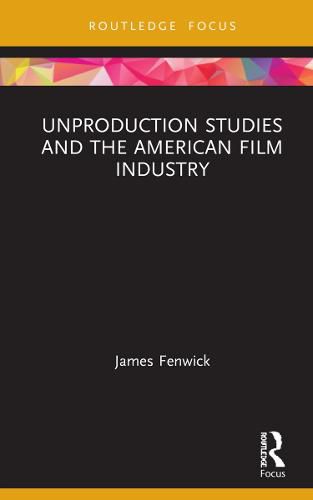Readings Newsletter
Become a Readings Member to make your shopping experience even easier.
Sign in or sign up for free!
You’re not far away from qualifying for FREE standard shipping within Australia
You’ve qualified for FREE standard shipping within Australia
The cart is loading…






This book makes the case for unproduction studies, the study of films left unmade, unseen, or unreleased, as a radical discipline with the potential to uncover a shadow history of the American film industry.
Exploring the archival methods that can be utilised in this endeavour, James Fenwick argues that a revisionist history is needed to understand the logic of the film industry, finding that it has long-been predicated on a system of unmade creativity in which finances, resources, and labour is invested into projects that production companies know will never be produced or have no intention of ever producing. Using the Production Code Administration (PCA) records, housed at the Margaret Herrick Library, as a case study, the book explores the material existence of the unmade and considers how archives and archival methods can be used to construct a shadow history that recovers the forgotten, marginalised, and overlooked figures in film history, providing explanations for structural forces that contributed to the unmade.
Given its unique use of the unmade as an analytic for film history, this book will be an essential read for scholars interested in film and media history, performance studies, film production, and creative practice, as well as to archivists and archival researchers.
$9.00 standard shipping within Australia
FREE standard shipping within Australia for orders over $100.00
Express & International shipping calculated at checkout
This book makes the case for unproduction studies, the study of films left unmade, unseen, or unreleased, as a radical discipline with the potential to uncover a shadow history of the American film industry.
Exploring the archival methods that can be utilised in this endeavour, James Fenwick argues that a revisionist history is needed to understand the logic of the film industry, finding that it has long-been predicated on a system of unmade creativity in which finances, resources, and labour is invested into projects that production companies know will never be produced or have no intention of ever producing. Using the Production Code Administration (PCA) records, housed at the Margaret Herrick Library, as a case study, the book explores the material existence of the unmade and considers how archives and archival methods can be used to construct a shadow history that recovers the forgotten, marginalised, and overlooked figures in film history, providing explanations for structural forces that contributed to the unmade.
Given its unique use of the unmade as an analytic for film history, this book will be an essential read for scholars interested in film and media history, performance studies, film production, and creative practice, as well as to archivists and archival researchers.